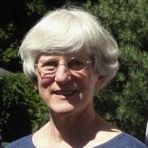 What is it about the genre or cross-genre you write in that interests you/draws you in?
What is it about the genre or cross-genre you write in that interests you/draws you in?
I’m most drawn to poems which are written for the ear and invite out-loud readings. I think that once we are slowed and engaged by the sounds our mouths are making, we can hear not only what the poet means, but in the poem’s rhythms, stresses, interrupted rhythms, and silences, how much he or she means it. A poem in the reader’s mouth becomes the reader’s.
I’m also fascinated by rich words and expressions which spark associations among other words, emotions, and ideas, and ignite a search for the sharpest images I can imagine.
How does this published piece fit in with the larger thematic concerns that you see in your overall work?
I’ve been surrounded by native trees for most of my life, and they show up frequently in my poems. Although I try to avoid anthropomorphism, I’ve been guilty of the reverse, particularly in a poem titled “My Life as a Tree.” Mostly, I think of trees as companion beings in our care with lives parallel to ours. It’s those parallels that I often draw on for poems. On the other hand, I owe much to my maternal grandfather and great-grandfather who felled virgin timber with hand tools to make their homes in this part of the world. To further complicate my love of trees, I also treasure the wooden furniture my dad made, and books, too, of course. For the sake of future generations, I am concerned about global warming, but this poem is quite local, focusing on the disappearing saw-toothed skyline of evergreens which used to wrap all around us here in Washington State except on our westernmost edge where the Pacific Ocean meets the sky.
What are you influenced by?
Words. My sons used to tease me for reading the dictionary. “Boring!” But they and my students gave me word gifts including the slang that erupted from teens discovering computers, the language physicists use to translate their work for non-scientists, and aviation terms chosen for their crisp precision. My attempts to learn foreign languages, too, had me combining words like a German, trying to think with less importance on tense like a Hebrew speaker, flexing syntax like a Russian, and contemplating ideas which have no English equivalents.
Errors. I love mishearings, odd Spell Check choices, and tongue slips.
Music. My first art was music. I draw on its forms and strategies of composition and performance. When I put together a book manuscript, I think I’m influenced by my experiences in planning concerts and performing large musical works. Later as I read over a manuscript, I am surprised to discover sound connections between one poem and the next which I must have chosen by ear.
Poets. In its form, this poem resembles my earlier work. I’m not sure why I wrote it that way except that the poem itself looks back. My first influences were the formalist poets Joseph Brodsky, Osip Mandelstam, Ed Hirsch, Anthony Hecht, Maxine Kumin, Robert Frost, and others.
Predicaments: A speaker I heard on the car radio a while back described a child as “your heart running away on legs.” Osip Mandelstam writes of the absent addressee. Max Ritvo found humor in his final illness. Other predicaments that inspire my writing are the challenges of immigration, homelessness, loss of faculties, and the strange beauty of disappearances.
What does your typical writing schedule look like? What aspects of working do you look forward to? What aspects frustrate you?
It would be lovely to have a typical writing schedule! When I do, I start by reading poems I’ve saved for inspiration and my own notes, and then try to make something of them. I most enjoy revising and shaping those starts, and hate not being about to revive the dead ends.
For fun, if you could pick one meal that matches the piece we published, what would it be and why?
The meal I most associate with our native trees is one which seemed to take forever to bake in the coals of an open fire when campfires were permitted. When a campfire finally burned down to coals, a simple stew of ground beef, onions, potatoes, and carrots wrapped in foil could bake without blackening, As it heated and the campers grew hungrier, its aroma mixed with the scents of surrounding conifers and their wood smoke so that no version of this meal prepared where no trees grew could ever match its flavor.
MURIEL NELSON lives near Seattle, Washington. She holds master’s degrees from the University of Illinois School of Music and the Warren Wilson MFA Program for Writers. Nominated five times for the Pushcart Prize, she is the author of Part Song, winner of the Dorothy Brunsman Poetry Prize (Bear Star Press), and Most Wanted, winner of the ByLine Chapbook Award (ByLine Press). Her poems have appeared in Beloit Poetry Journal, The Cortland Review, Four Way Review, Front Porch Journal, Hayden’s Ferry Review, Hunger Mountain, Massachusetts Review, National Poetry Review, New American Writing, The New Republic, Northwest Review, Ploughshares, Prick of the Spindle, Seneca Review, Smartish Pace, Sonora Review, The Spoon River Poetry Review, Superstition Review, and Valparaiso Poetry Review. Her work has been anthologized in Common Boundary: Stories of Immigration (Editions Bibliotekos, 2010), Conversation Pieces: Poems That Talk To Other Poems (Everyman’s Library, 2007), and Pontoon Three (Floating Bridge Press, 1999).

